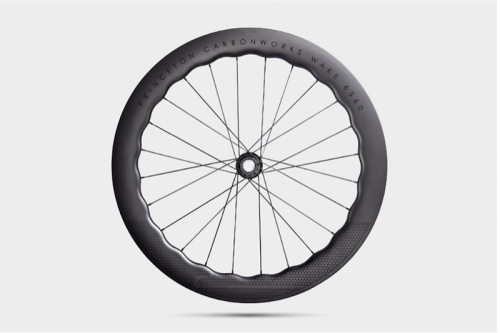WEST PALM BEACH, Fla. (BRAIN) — The judge in a patent dispute between SRAM and Princeton Carbon Works has granted each side some wins and some losses in pretrial orders as he signaled the case is best decided by a jury. A two-week jury trial is scheduled to start Feb. 13.
In its complaint filed in the U.S. District Court for the Southern District of Florida nearly two years ago, SRAM said that the wavy rim shape on Princeton's carbon road wheels infringes on its patent for a rim shape that SRAM says was inspired in part by a humpback whale flipper. SRAM uses that design on its Zipp 454 Carbon NSW wheels, which retail for up to $4,000 per pair. Princeton has filed a countersuit questioning the validity of SRAM’s patent.
On Friday, U.S. District Judge Roy K. Altman ruled on SRAM’s motion for a partial summary judgment, Princeton’s motion of summary judgment, and Princeton's motion to strike testimony from two of SRAM’s experts.
Altman granted SRAM’s request to put a stop to one of Princeton’s possible defenses: a so-called Section 112 defense. A Section 112 defense is based on showing that the language of a patent is inadequate to define its scope. Altman said that in pre-trial responses Princeton had failed to address Section 112 and had thus waived that potential affirmative defense — a partial win for SRAM.
Next Altman said that Princeton could continue a defense that asserted that SRAM’s patent was invalid because of prior art. “(W)e think a reasonable jury could side with Princeton,” Altman said of this potential defense — a partial win for Princeton.
Altman gave a win to SRAM by denying Princeton’s motion for summary judgment on the argument that its wheel design doesn’t infringe on SRAM’s patent because the Princeton wheels lack the “convex exterior profile” described in the patent.
In making this decision Altman weighed testimony from a SRAM expert witness, Dr. Laurens Howle, and Princeton’s expert, Dr. Ronald E. Hanson, ultimately ordering it would be best for a jury to decide.
“Perhaps Princeton’s right that, with a bit more context — and with the evidence properly weighed — SRAM has this all wrong. But, for now, we think this is a dispute of fact we’ll need a jury to handle,” he wrote.
Finally, Altman denied Princeton's motion to exclude testimony from two SRAM witnesses.
“This case presents us with a proverbial battle of experts,” Altman concluded, before quoting a line from his own order in a 2021 case. “(A)s we’ve said in a slightly different context, ‘we think it beyond cavil that the task of resolving [factual] disputes rests squarely with a jury of laymen, not a panel of (unelected) judges.’"




